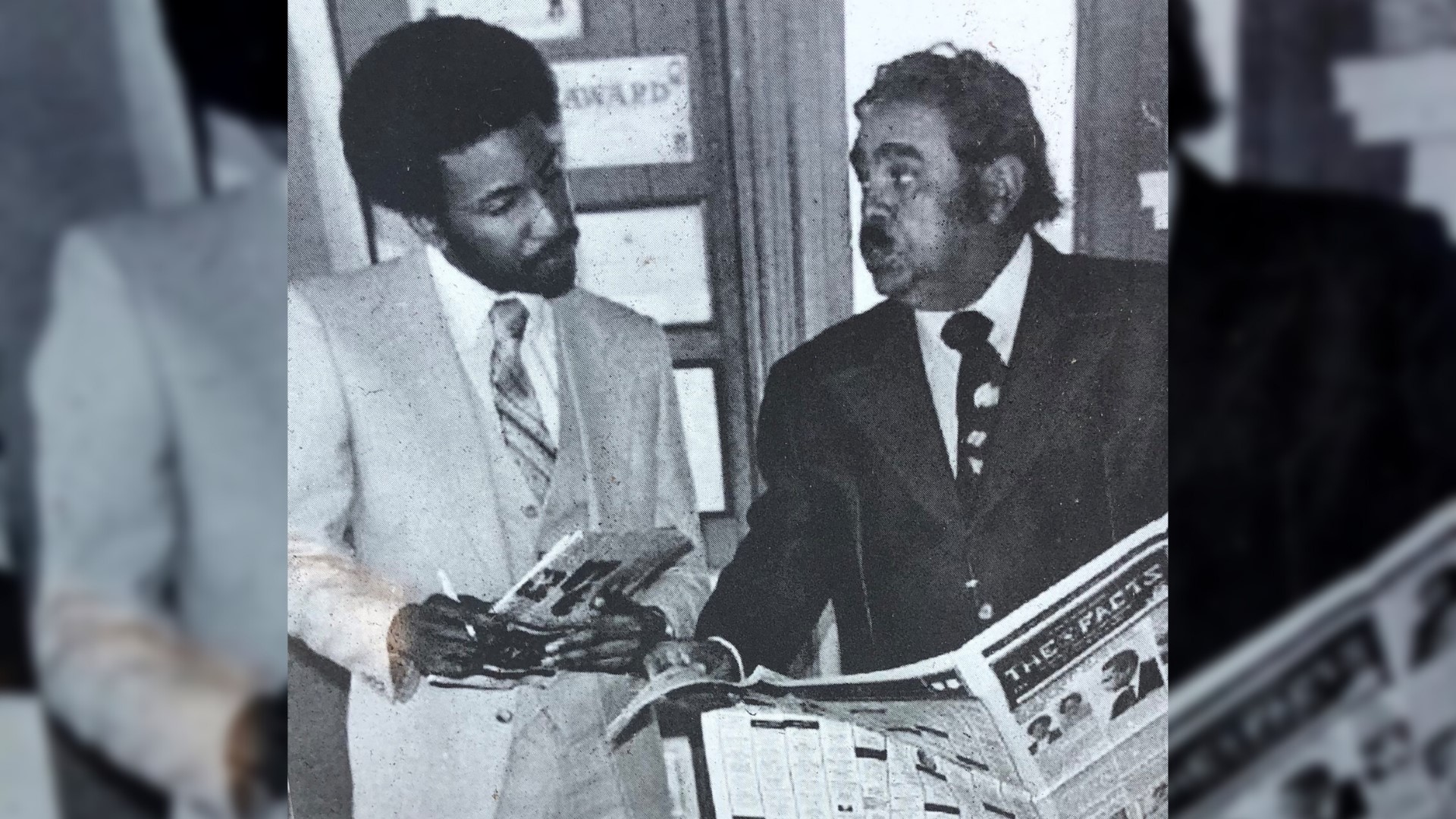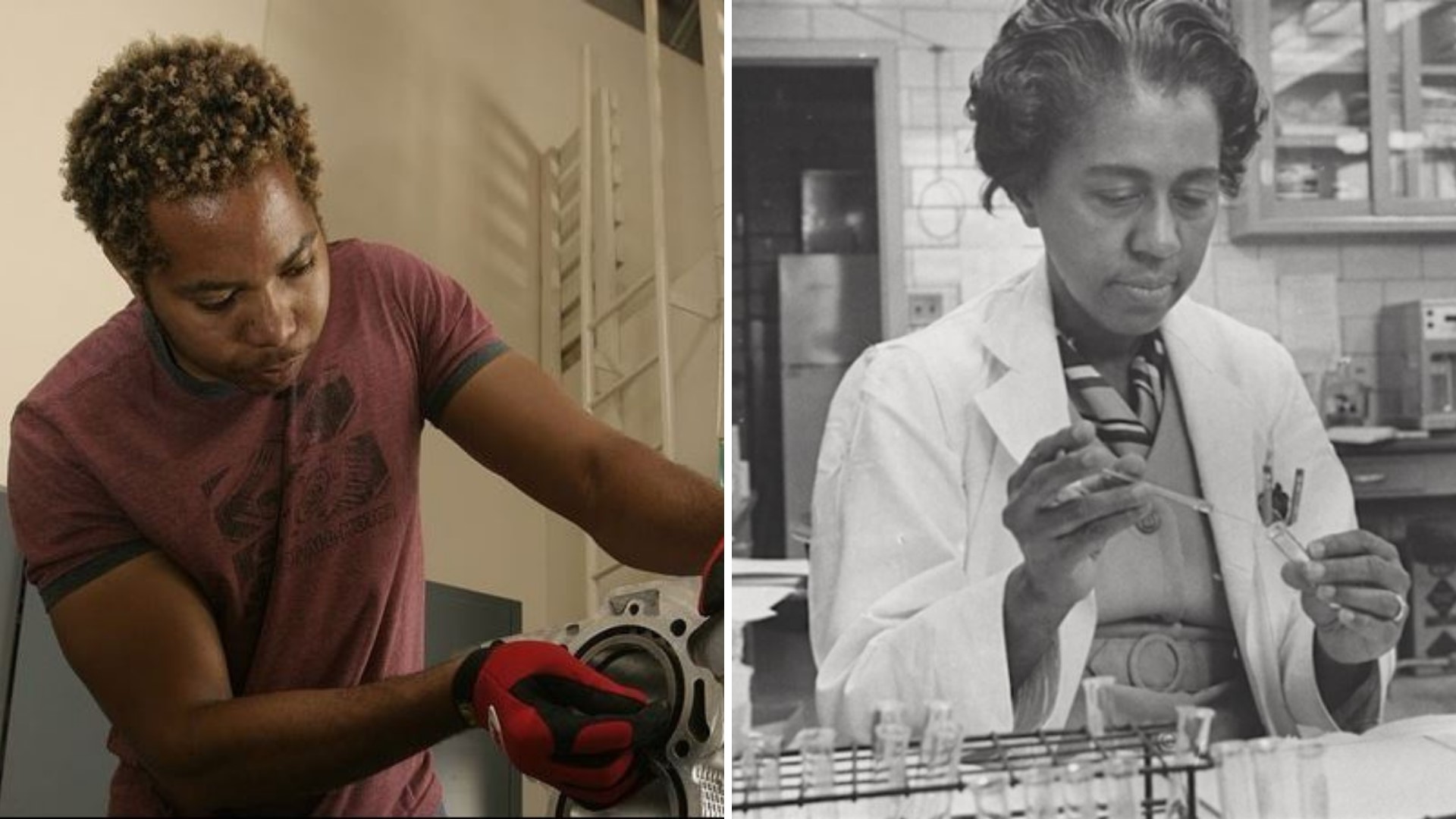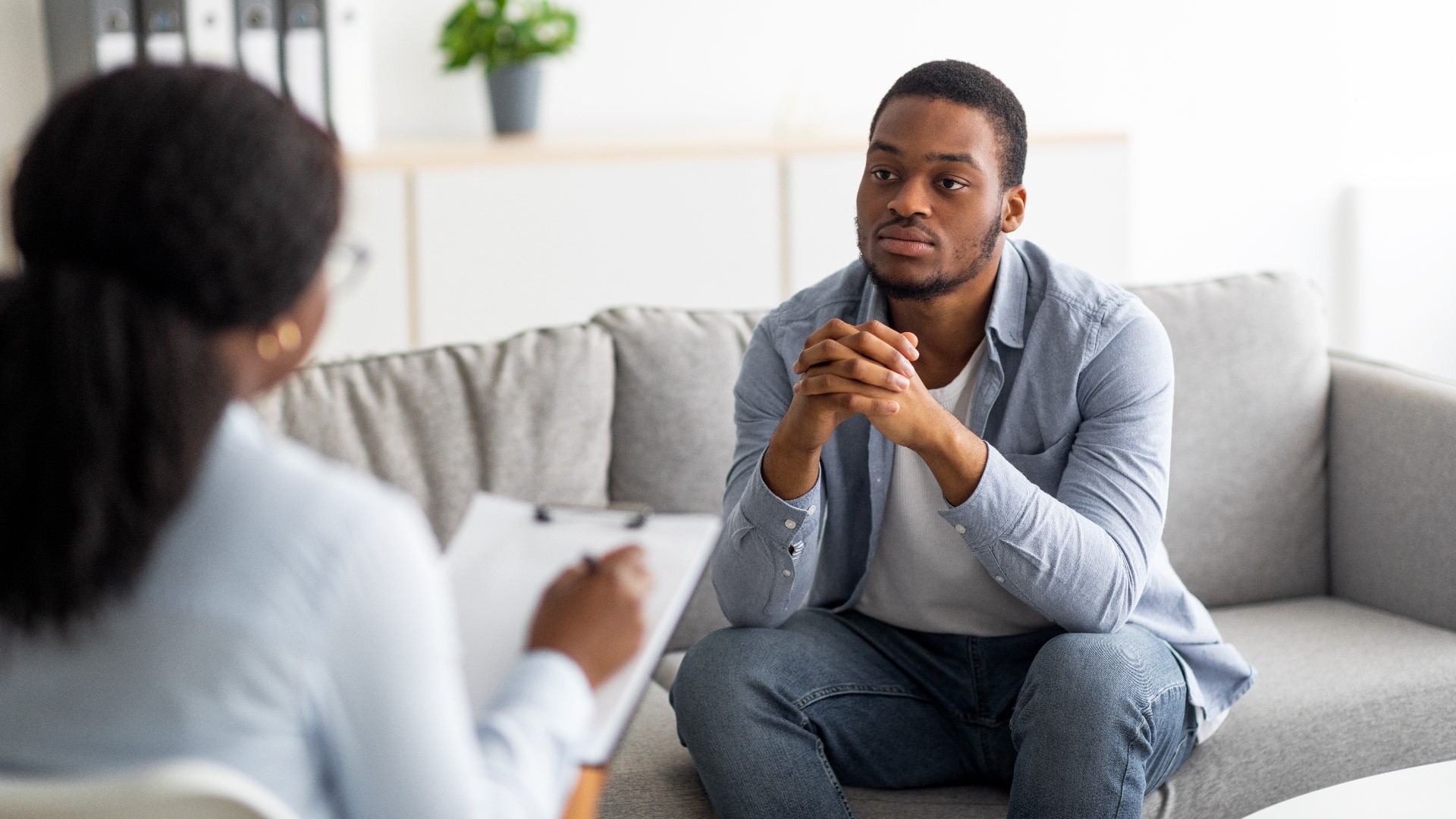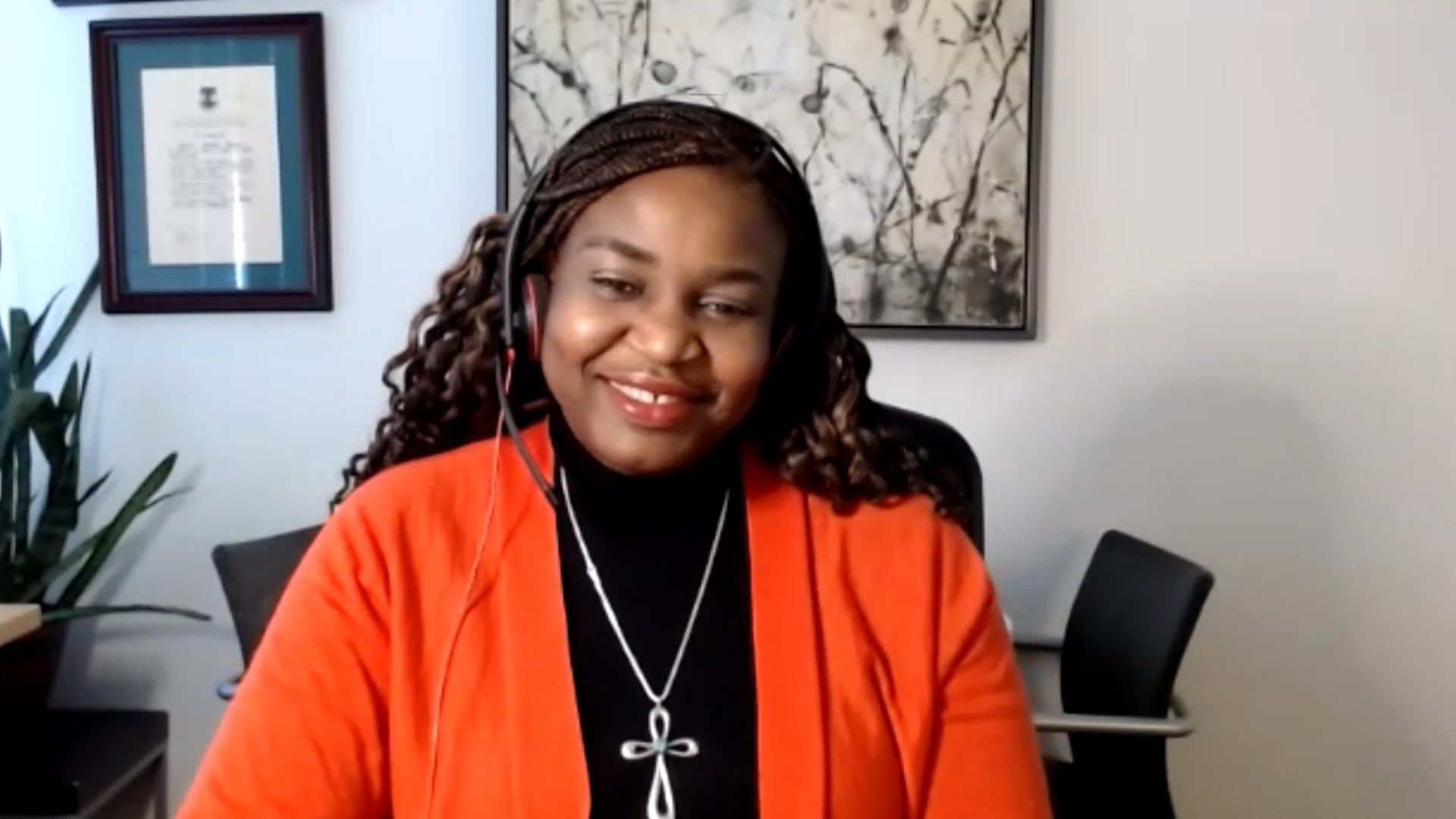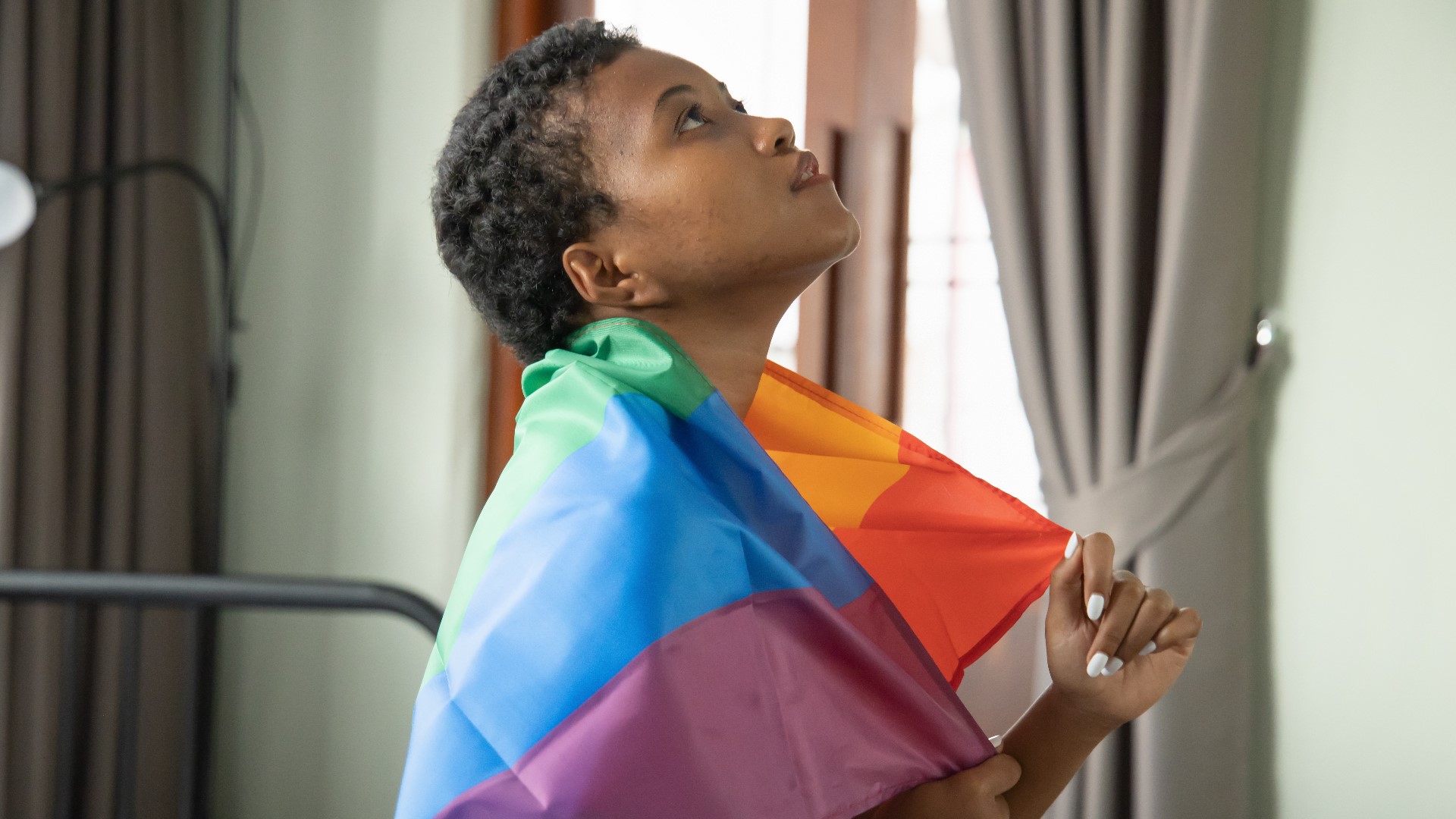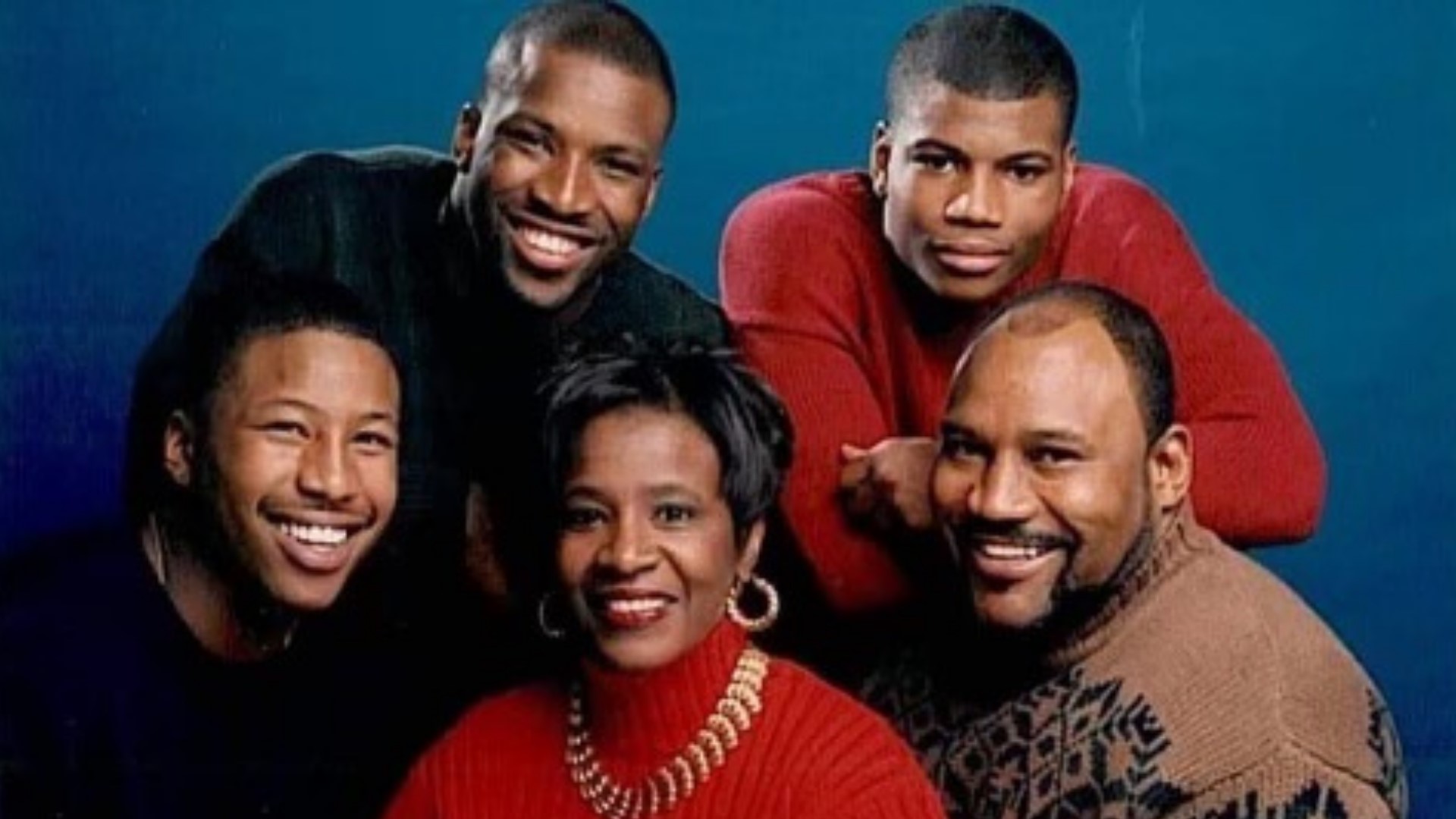Celebrating Black History Month
We spoke to community members, healthcare experts, and more in celebration of Black History Month and the accomplishments of Black leaders both past and present.
KING 5
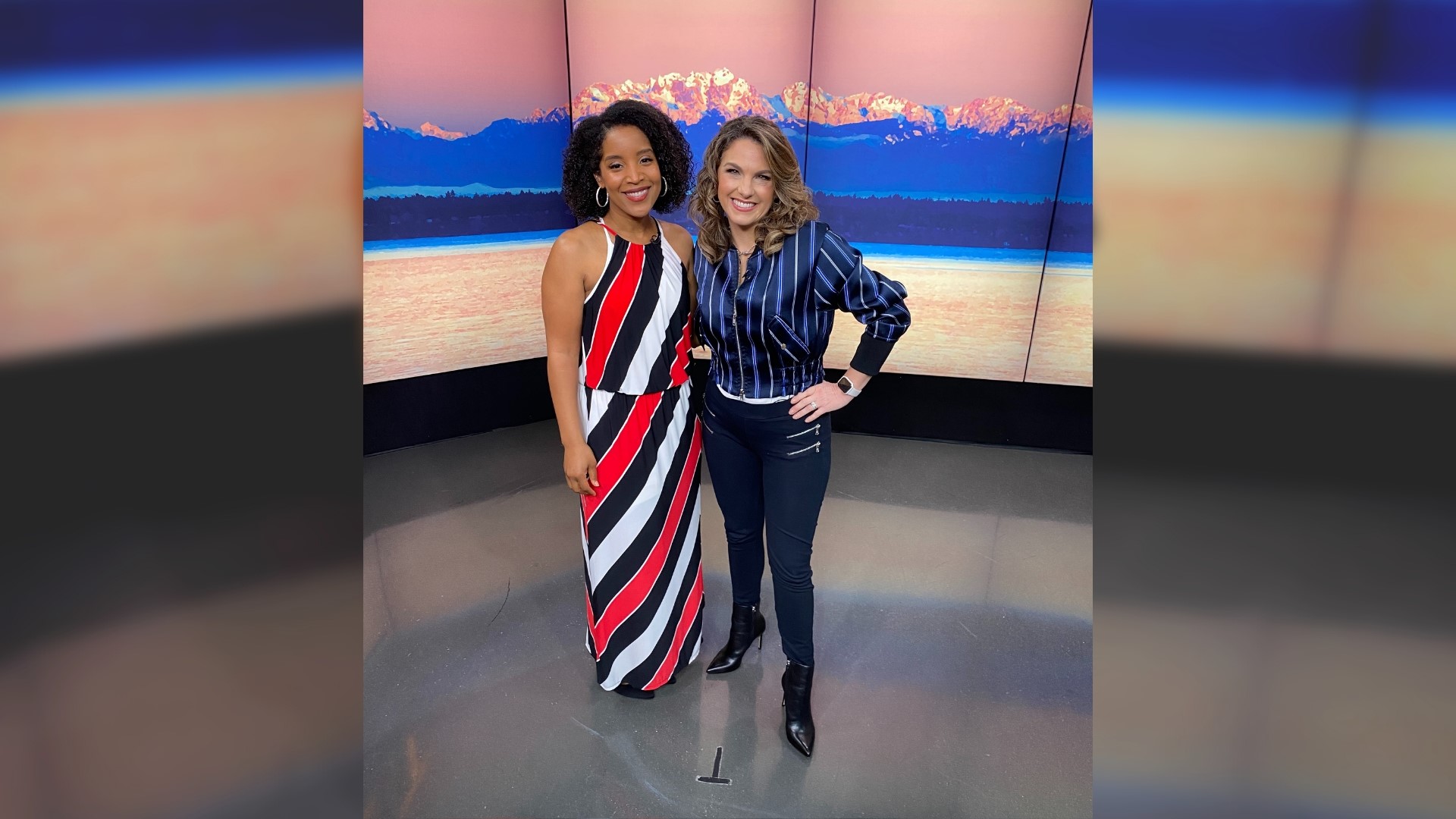
Legacy of 'The Facts' publisher lives on as new voices in media amplify his contributions
When Fitzgerald Beaver arrived in Seattle, he noticed it no longer had a newspaper that catered to the black community.
So on Sept. 7, 1961, he launched "The Facts".
"He picks up where the daily news drops off. That was his thing," his daughter Marla Beaver shared. "It's always been positive news."
Marla was just a little girl when she started working for her dad and his newspaper. For many years, she watched and learned. But she never imagined those skills would come in handy so soon in life.
In January of 1992, he passed away. Fitzgerald's wife, Elizabeth Beaver, kept "The Facts" going, and her daughters Marla and LaVonne eventually picked up the torch.
It's been 61 years, making "The Facts" the oldest Seattle newspaper serving the black community.
And while Beaver, the founder and publisher has been gone for 30 years, his legacy continues to expand.
Omari Salisbury, with Converge Media, credits Beaver for planting the seeds that got him here.
Converge produces digital content specifically for the Northwest's black community.
"One of the first jobs my dad had was a staff photographer at "The Facts" newspaper. My father's dream was to open a photography studio and Mr. Beaver is the one who put my dad in business," Salisbury shared.
Omari said watching his dad's career, inspired his own.
After graduating from college, he traveled the world working in media.
"When I returned to the U.S. in 2016, I knew there was a gap in our community and one of the biggest gaps was delivery of content in a video format," Salisbury explained.
Converge now produces 13 shows, including a daily morning show that streams live.
And he's already shaking things up.
KING 5 Interviewed him after his investigative reporting led to a discovery that the Seattle police department used a legal, but uncommon ruse during the Black Lives Matter protest of 2020.
And right after the swearing in of Seattle's new Mayor, it was Omari who got the first question.
"My first question was, 'what are you going to do for black people?'. And that's the importance of being there. If we weren't there, who was going to ask that question?" Salisbury shared.
Salisbury said he would not be where he is today without Beaver blazing the trail and lifting others up, like his father.
"You will never find us saying we got here by ourselves. We didn't."
So when Omari invited the Beaver family to his studio for a new project, he first wanted to say thank you.
"It is such an honor and a pleasure to have you and your family here in our studios today. Ever since I was a little kid, the legacy of Mr. Beaver loomed large. We literally stand upon these very broad shoulders and here we were 60 years ago, he started "The Facts", helped my dad get into business. Here I am at Converge, my son is studying broadcasting at Loyola," Salisbury shared with Marla.
Mr. Beaver's granddaughter is also following in her trailblazing family's footsteps.
The UW Student writes a column for the newspaper, called W.O.W. by Char. (Words of Wisdom)
"We are all self-taught and the beauty of that is that we have been able to sustain," Chardonnay Beaver said.
The bylines may have changed over the years, but the FACTS remains a family business with a rich history generations can draw from for inspiration.
"I tell Marla Beaver all the time, I hope we are doing her father's legacy justice. I hope we are working hard enough. I hope we are creating enough opportunities for other people," Salisbury shared.
"It feels good to be part of and to carry the legacy that my dad had started," Beaver said. "I wish he was here to see that, you know? I'll have to talk to him!"
Six Black STEM heroes you should know about
From understanding diet and cardiovascular health to inventing the Super Soaker and engineering nuclear propulsion for NASA, Black people have made countless contributions in the field of science, technology, engineering, and math (STEM.)
That's why the Pacific Science Center works to amplify Black voices all year long.
Holly Duskin, digital learning manager at Pacific Science Center, joined New Day NW to highlight six examples of Black figures in STEM who have made outstanding contributions to their field. Plus, she shared a science activity that parents can do with their kids at home to further explore these stories.
Featured Black Scientists
Lonnie Johnson — Inventor and Engineer
A curious child, Johnson experimented by taking things apart to figure out how they worked. Once, he nearly burned his house down trying to create rocket fuel. Johnson became an engineer working on the stealth bomber program for the Air Force and on nuclear propulsion systems for NASA. But the inventions he is most famous for are the Super Soaker and Nerf toy gun!
Mae Jemison — Engineer and NASA Astronaut
Mae could have been a dancer, but she always wanted to be an astronaut. Entering college at age 16, she earned degrees in chemistry, Afro-American studies, and medicine. But space still called, so Mae applied to NASA. She became the first African American woman in space as crew on the shuttle Endeavour and then formed a company to develop technologies that improve everyday life.
Stephanie D. Wilson — NASA Astronaut and Engineer
Stephanie D. Wilson is a veteran of three spaceflights: STS-121 in 2006, STS-120 in 2007, and STS-131 in 2010 and has logged more than 42 days in space. She is a member of the Artemis Team, a select group of astronauts charged with focusing on the development and training efforts for early Artemis missions. She has a Bachelor of Science in Engineering Science from Harvard University, Master of Science in Aerospace Engineering from University of Texas at Austin, and did her graduate research on control and modeling of large, flexible space structures sponsored by NASA Graduate Student Researchers Fellowship.
Rae Wynn-Grant — Wildlife Ecologist
As an ecologist, Wynn-Grant has an expertise in uncovering how human activity influences carnivore behavior and ecology. Working in the central coast of California, she is studying the unique ecology of carnivores in coastal zones as well as the role of protected areas in connectivity of high-quality habitat for large carnivores. She is a research fellow with National Geographic Society focusing on carnivore conservation in partnership with the American Prairie Reserve and a visiting scientist position at the American Museum of Natural History.
Bisi Ezerioha — Professional Race Car Driver, Entrepreneur, and Engineer
Ezerioha is the CEO and chief engineer of his company, Bisimoto Engineering. At the age of 15, he attended the Anambra State University of Technology to study petrochemical engineering. After a year of studies in West Africa, he graduated with honors in applied and natural science associate degrees and obtained his bachelor's in chemical engineering and engineering management from California State University. After a decade of pharmaceutical research and sales, he opened Bisimoto Engineering, focusing on design, manufacturing, and sales of high-performance parts for motorsports. He has been involved in import drag racing and has built and driven the fastest carbureted front-wheel-drive vehicle in the world.
Marie Maynard Daly — Biochemist
Inspired by her father, who was financially unable to finish his degree, Daly became the first African American woman to earn a Ph.D. in chemistry. Her research significantly contributed to our understanding of heart attacks and lung disease. In addition, her trailblazing research helped advance our understanding of how diet affects cardiovascular health and the circulatory system.
Taking a closer look at barriers to mental healthcare for Black Americans
Facing racism, discrimination, and inequity has a significant impact on mental health for Black Americans. But only 1 in 3 Black adults who report needing mental healthcare actually receive it.
There are many barriers to mental healthcare for the Black community, including socioeconomic disparities, stigma, reluctance to show emotions, and religious beliefs.
“If we talk about a subject or show any kind of emotion around what we’re going through, we’re labeled as being weak,” said Richard Taylor Jr., Seattle author and mental health advocate.
Another barrier is fewer Black mental health professionals in the field, which leads to a lack of appointment availability.
“Barriers combined, essentially what they do is they put us in this position where we feel hopeless,” Taylor said.
Breaking the stigma and putting an emphasis on mental health is important for overall health.
“We need to be able to do the same thing we would do with our physical health, which is make investments into it,” Taylor said.
Taylor suggests being proactive, rather than reactive, with mental health. Determine ways to invest in your mental health and get help if you need it.
“All it takes is one situation,” Taylor said. “All it takes is one circumstance, and I can find myself, if I’m vulnerable and susceptible, in a position to struggle with anxiety for the first time, find myself dealing with depression or dealing with grief with the loss of family or friends.”
People in the Black community may also be carrying generational trauma that comes from the Black experience in America. This includes historical happenings like slavery, segregation, and the Civil Rights Era.
“When we see some of the things we see in our society now, I think it almost feels sometimes like it’s a cycle repeating,” Taylor said.
This can lead to hopelessness that things will never change and anxiety about what situations you may face each day. These feelings can affect your mood and self-identity.
If you are struggling with mental health, there is help available. Visit the Premera website or the National Alliance on Mental Illness for more information and resources.
Healthcare leader talks improving racial, economic health equity
Disparity in healthcare based on race and socioeconomic status has improved over time, but there is still significant progress to be made. According to the Century Foundation, African Americans still experience illness at high rates and have lower life expectancy than other racial and ethnic groups.
“We talk about how most of us health systems pride ourselves in delivering high quality care,” said Dr. Nwando Anyaoku, Swedish’s first chief health equity officer. “We’ve known for a long time that different groups, particularly Black populations, do not experience healthcare systems or healthcare efforts in the same way.”
Black Americans have higher rates of maternal morbidity and mortality and poorer outcomes in childbirth than Caucasians. Social determinants of health, including nutrition, education, and transportation play a large role in that.
“It turns out that there are a lot of factors that impact the way we receive and experience care, a lot of those that happen well before you ever arrive at a healthcare system,” Dr. Anyaoku said.
This was highlighted in Black communities by the COVID-19 pandemic. Many Black Americans were frontline workers who were not able to take time off work, and they often live in multi-generational households where there is greater risk of transmission. Poorer control of conditions like hypertension and diabetes was also a factor.
“It then became a perfect storm where all of these things combine to make it more difficult for them to experience and receive good care,” Dr. Anyaoku said.
Black children are four to six times more likely to die from asthma than white children. If parents aren’t able to take time off work and can’t get them to appointments, that has an impact on a child’s health. Trust in healthcare is also an issue.
“If the families or community don’t trust the healthcare system, haven’t experienced it as being compassionate and fair to them, they might push off receiving healthcare until it’s too late,” Dr. Anyaoku said.
Truly understanding barriers and addressing them can lead to better healthcare. Building partnerships in the community with Black churches or trusted organizations to provide education and resources is key to closing gaps in healthcare.
“Building trust and building connectivity is what is really critical to serve the Black population and make sure they get the outcomes that we intend as a healthcare system,” Dr. Anyaoku said.
To learn more about Dr. Nwando Anyaoku and her work on healthcare equity, visit the Swedish website.
The importance of intersectionality in the Black queer community
During Black History Month we celebrate the history and achievements of the Black community, but also embrace the challenges that lay ahead. Many agree that another important part of this time is recognizing how vast, diverse, and multi-dimensional the Black community is.
That's why Alanna Francis from Three Dollar Bill Cinema and Isabella Price from Langston Hughes Performing Arts Institute joined New Day NW to talk about intersectionality.
"We really recognize how vast the Black community is when we start talking about intersectionality," Francis said.
From people identifying as Queer to those experiencing homelessness, those living with varying abilities, and people with corporate or nonprofit careers, Francis elaborated, that intersectionality allows us to see how beautiful those differences make us.
Through the perspective of intersectionality, we are able to recognize that without all these parts of the community, bringing about desired change and coming together is not possible, she said.
Intersectionality is a way for many to create community in a variety of spaces while honoring everyone's differences, Francis said. It is used as a way of highlighting everyone's differences that also overlap across identities.
"We are all this entire web of humans across this beautiful space," she said.
At the intersection of Black and Queer
The queer community is very diverse, so when it comes to the Black queer community, everyone in this intersection of identity has different experiences.
"There's a lot to learn," Francis said. "Not any one person is going to be able to tell you exactly what it is like to be Black and to be queer."
The lack of any common or uniform experience by people in the Black queer community opens up a wide opportunity for those in the community to discuss and build what it means to celebrate who they are, she said.
Part of that conversation, Francis said, is to talk about where additional resources and conversations can be invested.
This conversation includes figuring out which spaces and cultural contexts this community is able to be in and occupy.
"Where are we able to be? Where are we able to really take power and dance and create art and create films and bring in more people and celebrate our foods and mix up how we’re able to work in spaces and how we’re able to really maintain this trajectory of queerness and transness in our communities,” she elaborated.
To spotlight all of these topics and further the conversation, Isabella and Alanna recently held a film event with works that tell the stories of characters with these experiences.
Recommended Films
"We want to be invested in"
When asked about her hopes for the Black queer community in the future, Isabella said she hopes for not only the health and safety of the people in the community but for a quality of life that runs much deeper.
"The things that I hope are for not only our health and our safety, which has always kind of been secondary in culture, in government, in society," she said, "I'm talking about our mental health, our sexual health, I'm talking about our physical health."
Isabella wants the people of her community to do more than just survive; she wants them to thrive as people.
In order for people in the Black queer community to express themselves, have the jobs they want, and live the lives they want, a sense of safety is required, she said.
Isabella explained that every Black queer person lives in fear of being able to enter the spaces of everyday life, including bars and bathrooms.
"Every single section of your life is lived in such fear and I wish for us to be free of fear," she said. "I wish for us to be able to live authentically; beautiful, big, open, wide lives because so much of our culture is based on queerness."
Isabella went on to note that many elements of culture that most love and enjoy have roots and inspiration from Black queer culture including fashion, music, dance moves, and more.
"We want the same kind of love that you give to our culture, to our vibratiousness, to our vibrancy, to drag queens," she explained. "We want that back."
Terry Hollimon tells us the inspiring story of his family
Terry Hollimon, friend and contributor to New Day NW, joined the show to tell us about his heroes — his parents who were sharecroppers in Arkansas.
Watch New Day Northwest 11 AM weekdays on KING 5 and streaming live on KING5.com. Contact New Day.

